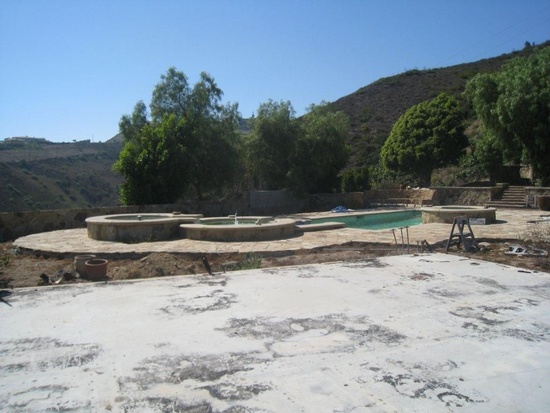MALIBU—The California Coastal Commission, which plans and regulates the use of land and water in the coastal zone, set a hearing for Thursday, November 13, to deliberate and resolve a 20-year-long bout concerning environmental disturbances at 5656 Latigo Canyon Road. Hartmut Neven, a German scientist who co-founded the Google Glass Project, currently owns the property.
The Commission will discuss an amendment modifying previous Consent Cease and Desist Orders and Consent Restoration Orders, which were issued in 2005. The proposed amendment will force Neven and all future owners “to assume the obligations of the Original Consent Orders and to resolve an additional Coastal Act violation that occurred after the Original Consent Orders were issued, but before the Current Owners bought the property.”
The violations the Commission are referring to include the dumping of concrete, rebar, bricks, asphalt, plastics and metal materials into a canyon; containing two United States Geologic Survey designated blue-line streams. The dumping (by the previous owner) allegedly altered one of the streams and removed vegetation in an Environmentally Sensitive Habitat Area. Other violations include: unpermitted “grading and paving of a building pad; grading of two roads, one paved with asphalt and the other left unpaved; and the purported subdivision of one lot into two lots.”
The violations began in 1995 under owner Forest Freed. Five years after the California Coastal Commission notified Freed of his violations, he sold the property to Sanford Horowitz, who had “constructive knowledge” of the existing violations, which Freed had failed to remediate. In 2005, the Commission directed Horowitz via Original Consent Orders to “remove items of unpermitted development, restore areas impacted by the unpermitted development,” and cease and desist from continuing development without the proper permits. Horowitz failed to submit a mandatory restoration plan in 2006 and allegedly continued development, despite the cease and desist order.
In 2007, the residence on the property burned down and the Commission allowed Horowitz to have an extension on his restoration plan. For years he did not comply; in December 2012, he lost the house to foreclosure.
Neven soon acquired the property and “since purchasing the property, [he has] worked closely and cooperatively with Commission staff to resolve all Coastal Act claims to reach this amicable resolution.”
The Commission explains that Neven has agreed to take on the obligations of the Original Consent Orders and to take additional measures to ensure the successful restoration of the property. The Commission’s staff expressed their gratitude to Neven for that.
But despite his forthright willingness, the amendment still needs to be voted upon in order to legally require Neven to unify the unpermitted division of land back to the single, legal lot, and resolve all Coastal Act violations on the Property.
Speaking with Canyon News, Neven said, regarding the amendment, “they found their solution and I am ok with the agreement that they arrived at.” He described it as a “good resolution.”
He expressed willingness to return the two lots, upon which the property was illegally divided, to one unified lot. In addition, Neven discussed the restoration plan, which he described as a “collective effort from the architect and geologists,” who Neven hired.
But Neven also wanted to express that “It’s not a home—just a piece of land that we bought. We plan to build a new home at some point, but not at the moment.”






